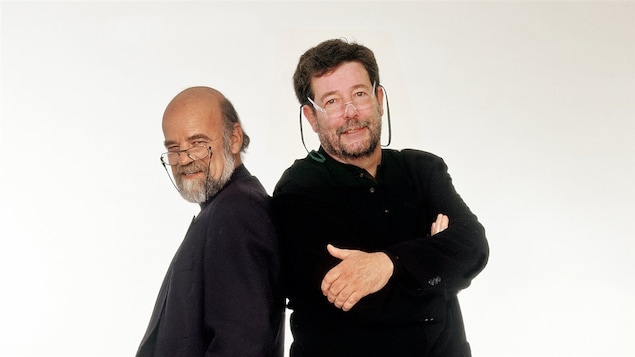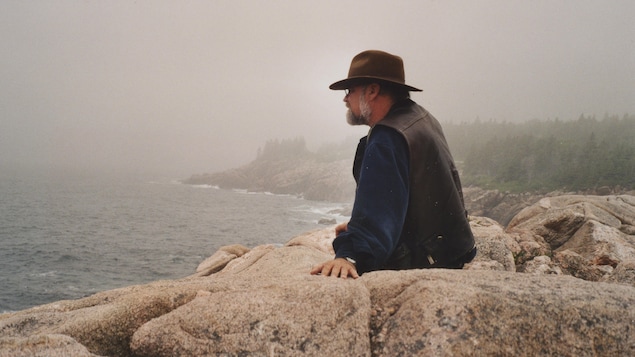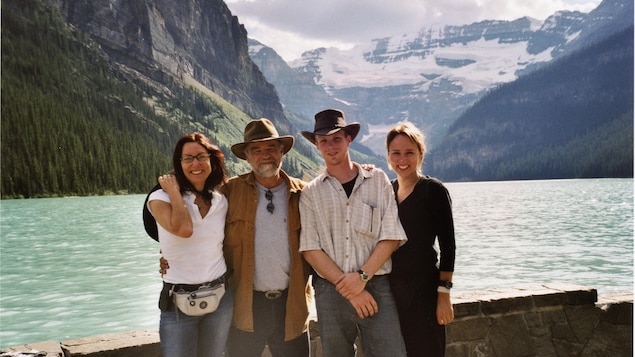Serge Bouchard passed away on May 11, 2021. For more than 25 years, anthropologist’s reflections and soothing voice accompanied Radio-Canada radio listeners. Discover in our archives some memorable programs and topics loved by this observer of social reality.
The practice of a modern anthropology
In 1973, Serge Bouchard earned his master’s degree at Laval University with a thesis on the knowledge of Labrador’s Innu hunters. He then did a doctoral thesis at Mc Gill University (1980) on the lives of truckers.
By the late 1970s, the fields of anthropologists were no longer only located in exotic locations near isolated communities. Serge Bouchard practices the flow of applied anthropology studying the modern world. An experienced communicator, he has worked in several organizations as a management consulting anthropologist.
Aboriginal people, their relationship to nature, the northern part and the life of the trucker will remain themes that the author wanted throughout his career.
On August 28, 1981, the host of Reflections of a nationSerge Cossette, speaks with researchers as part of a program that discusses the daily lives of truck drivers.

Serge Bouchard delivered his observations to this group of workers he had accompanied for two years. He said the group is selective, that the criteria for being a recognized and respected driver are many. “It’s more than a job, it’s a way of life. “
Breaking down our common areas
During his studies at McGill University Serge Bouchard befriended anthropologist Bernard Arcand, who was the director of his thesis at the time.
In the mid -1990s, two acolytes witnessed in our common areas. These everyday realities, which we no longer see, Serge Bouchard and Bernard Arcand observe them and share their thoughts with us.
On Radio-Canada radio, anthropologists take turns showing a monologue on a chosen topic: public opinion, cemeteries, firefighters, bad people, baldness, and more.
Sometimes the words make you smile and are full of humor, however, they are always scholarly and show great finesse. The reflections are supported by historical and cultural references.
On May 25, 1994, the audience will hear 55at episode of Common place. In this excerpt from a radio show, it’s about lying.

Beware of people who begin all their sentences with this phrase: “To be honest and truthful”; these people are hiding something, launched Serge Bouchard. The tone of the show is set.
Throughout his career, Serge Bouchard would publish several works on his lands along with Aboriginal communities, on the animals of our forests, on historical figures left behind, etc. Common areas will be the subject of seven collections.
From the 1990s, we see the anthropologist appear more and more often on television, where he is invited to share his thoughts on certain philosophical or topical themes.
On September 12, 1999, the broadcast Life of the actor asking him about some big questions. In this excerpt, director Marie-Claude Dionne asks him “Are we free?”.

“Of course not,” he answered without hesitation. First and foremost we are social beings and this carries part of it with barriers.
” A man is not alone. So this is the sum of what it will learn. He will be happy with a certain stability. So this is a relative alienation. “
On the road with Serge Bouchard
After the broadcast of Common place which lasted five years, Serge Bouchard led a new show, The cross roadsreleased on June 25, 2000.

For the show’s first theme, the anthropologist returns to one of his passions, the road.
” The road is my passion, I am a truck and I invite you to ride with me. “
The journey takes 14 years. Every Sunday, the animator borrows The cross roads to convey his thoughts on the topics he likes.
In 2003, he left with a team to travel across Canada from east to west on the occasion of the 40th anniversary of the Trans-Canada Highway.
The show A black spruce named diesel first released on February 24, 2003 from Cape Spear, near St. Louis. John’s, Newfoundland. In this radio excerpt, host and director Rachel Verdon explained the concept to the audience.

Serge Bouchard points out that the road is often a subject that is underestimated, because it is the gap.
” The path is physical, it is abstract, it is in our head. Everything is path. Our galaxy is called the Milky Way. We see this as a path. We see many things as a path, our life is a path. “
Crossing the scenery from coast to coast, he told us about the places visited and the stories of some key characters.
Recounting the Forgotten in America’s History
In February 2005 the show began Significantly forgotten. Always accompanied by director Rachel Verdon, Serge Bouchard offers us another way to see history. Each episode exposes us to the journey of surprising characters hidden by historians.
” Significantly forgotten side with the forgotten and abused in history, “Rachel Verdon said in the first broadcast. The concept will hold the airwaves until 2011.
” For me, anthropologist, historian, North American and passionate about the diversity of Native American culture, one of the greatest tragedies in world history is America “
On July 28, 2014, prior to the opening of the Canadian Museum for Human Rights in Winnipeg, journalist Azeb Wolde-Giorghis spoke with Serge Bouchard at Newscast.

This evokes Canadians ’lack of understanding of the place of Aboriginal people in the country’s history.
Canada does not recognize genocide within its borders. However, according to the anthropologist, already documented in Newfoundland, the Beothuk were exterminated by the English and French.
” We play with words, with people. We’ll say Louis Riel was hanged in Regina, but who knows that eight Cree were hanged in Winnipeg in the same movement? Which students know their names? “
The First Nations occupied territory throughout America and they would lose 80% after contact with the Europeans. They will rot because of diseases, but also in weapons.
The anthropologist explained that not recognizing him always hurt him deeply.
Serge Bouchard passed away on May 11, 2021 at the age of 73.
Source: Radio-Canada